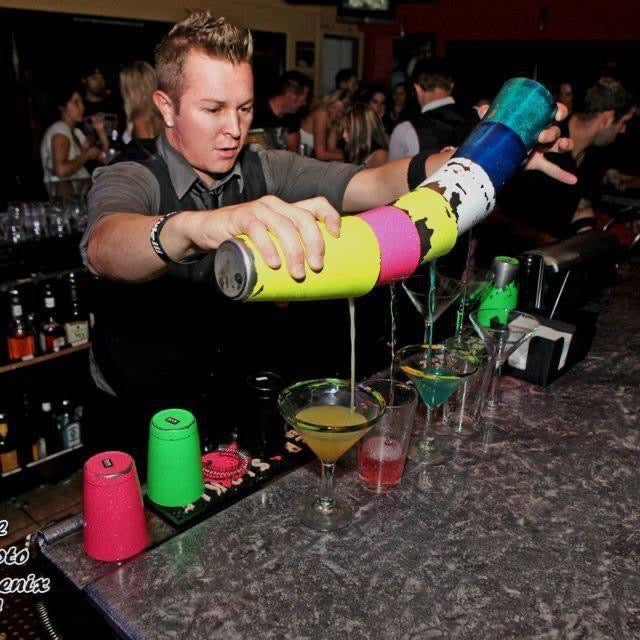
Bartending: A Blend of Craft and Artistry
Bartending is an age-old profession that combines the delicate balance of mixing drinks with the artistry of entertaining and engaging customers. From classic cocktails to modern mixology, bartenders play a pivotal role in the social fabric of bars, lounges, and restaurants, providing not just drinks but also creating memorable experiences for patrons. This profession requires a diverse skill set, encompassing knowledge of spirits, liqueurs, mixers, and garnishes, along with a keen sense of hospitality and flair for showmanship.
The Roots of Bartending
The history of bartending dates back centuries, evolving alongside the development of alcoholic beverages. While its origins are somewhat murky, it is believed that the practice of mixing alcoholic drinks can be traced back to ancient civilizations, where fermented beverages were served during social gatherings and religious ceremonies. Over time, the concept of bartending evolved, and bartenders became essential figures in the hospitality industry.
The Craft of Mixology
Mixology is the art and science of creating cocktails, and it is an integral part of modern bartending. Mixologists are skilled professionals who experiment with ingredients, flavors, and presentation to craft unique and extraordinary drinks. They pay attention to the balance of sweet, sour, bitter, and salty elements, as well as the use of fresh fruits, herbs, and homemade infusions to elevate the drinking experience. Mixologists often draw inspiration from culinary techniques and regional ingredients, making their craft a dynamic and ever-evolving field.
Prohibition Era and Mixology
One significant milestone in bartending history was the Prohibition era in the United States, lasting from 1920 to 1933. During this period, the production and sale of alcoholic beverages were prohibited, leading to the rise of speakeasies, clandestine bars that operated covertly. Bartenders during Prohibition often had to be resourceful, concocting creative cocktails to mask the taste of subpar spirits and cater to their patrons' preferences. This period also gave birth to the art of mixology, where bartenders started focusing on the science of crafting balanced and innovative drinks.
The Role of Bartenders in Modern Society
Bartenders are not just skilled drink makers; they also act as confidants, entertainers, and even therapists for their patrons. The bar counter becomes a place where people share stories, celebrate milestones, or find solace after a long day. A good bartender possesses the ability to read their customers' moods and respond with empathy and professionalism. This emotional intelligence fosters a strong bond between bartenders and their clientele, creating a welcoming atmosphere in the establishment they work at.
Education and Training in Bartending
While some may believe that bartending is a casual profession requiring minimal skills, modern bartending demands a high level of expertise and continuous learning. Many bartenders undergo specialized training programs or attend bartending schools to hone their craft.
These programs cover various aspects of bartending, including mixology, customer service, responsible alcohol service, and the legal implications of alcohol consumption. Additionally, they learn about different types of glassware, bar equipment, and techniques for precise and efficient drink preparation.
The Art of Flair Bartending
Flair bartending is a visually captivating aspect of bartending that involves using various objects, such as bottles, shakers, and glassware, to create dazzling and acrobatic displays while making drinks. Although flair bartending may not be essential for all bartenders, it adds an extra layer of entertainment and excitement for customers, making it popular in certain establishments and competitions. Masters of flair bartending can execute mesmerizing tricks without compromising the quality of their drinks, elevating the overall experience for their patrons.
The Rise of Craft Cocktails and Speakeasy Culture
In recent years, there has been a resurgence of interest in classic cocktails and the speakeasy culture of the Prohibition era. This revival has been driven by a desire for authenticity, quality, and nostalgia. Craft cocktail bars have gained popularity, focusing on using premium ingredients, artisanal spirits, and traditional recipes to recreate historical drinks. These establishments often emphasize attention to detail, personalized service, and a sophisticated atmosphere.
Bartending Challenges and Ethical Responsibilities
While bartending can be a rewarding profession, it comes with its challenges and ethical responsibilities. Bartenders must be vigilant in recognizing signs of overconsumption or intoxication among their customers and ensure they adhere to responsible serving practices. They play a vital role in preventing alcohol-related incidents and promoting the safety and well-being of their patrons. Additionally, bartenders need to be aware of age restrictions and legal drinking age requirements, ensuring they serve alcohol responsibly.
Conclusion
Bartending is an intricate blend of craft, science, and artistry that has evolved throughout history to become an essential element of the hospitality industry. From its ancient roots to modern mixology, bartenders have played a significant role in shaping the social experiences of patrons worldwide. The profession demands continuous learning, creativity, and a deep understanding of the diverse world of spirits and flavors. Bartenders hold the power to make a lasting impact on their customers, crafting not just cocktails but also cherished memories and moments shared over the bar counter. As the world continues to evolve, bartending will remain a timeless profession that weaves together the threads of tradition, innovation, and the joy of raising a glass in good company.

